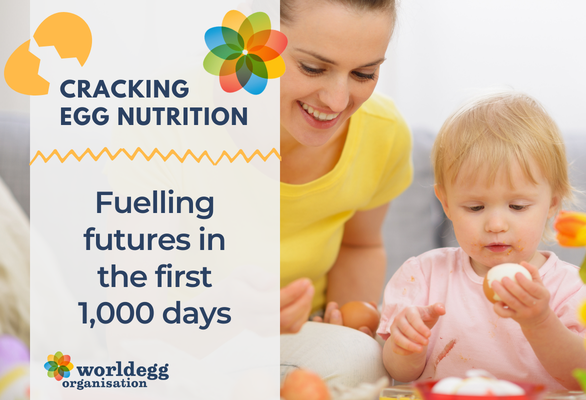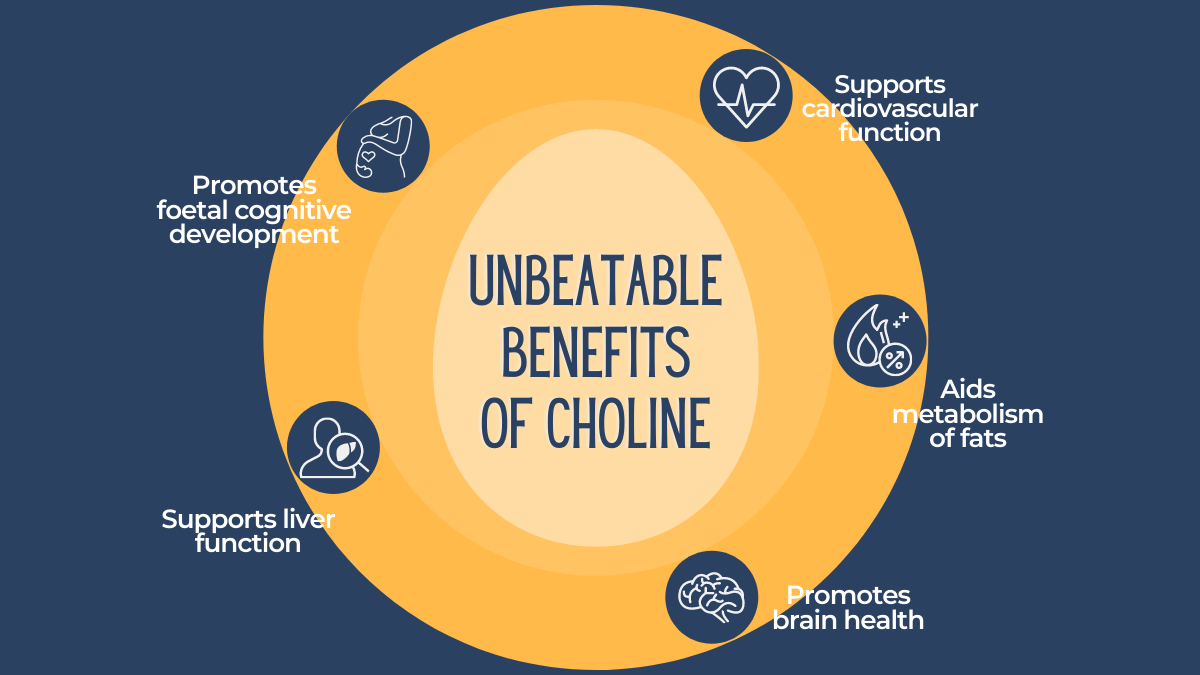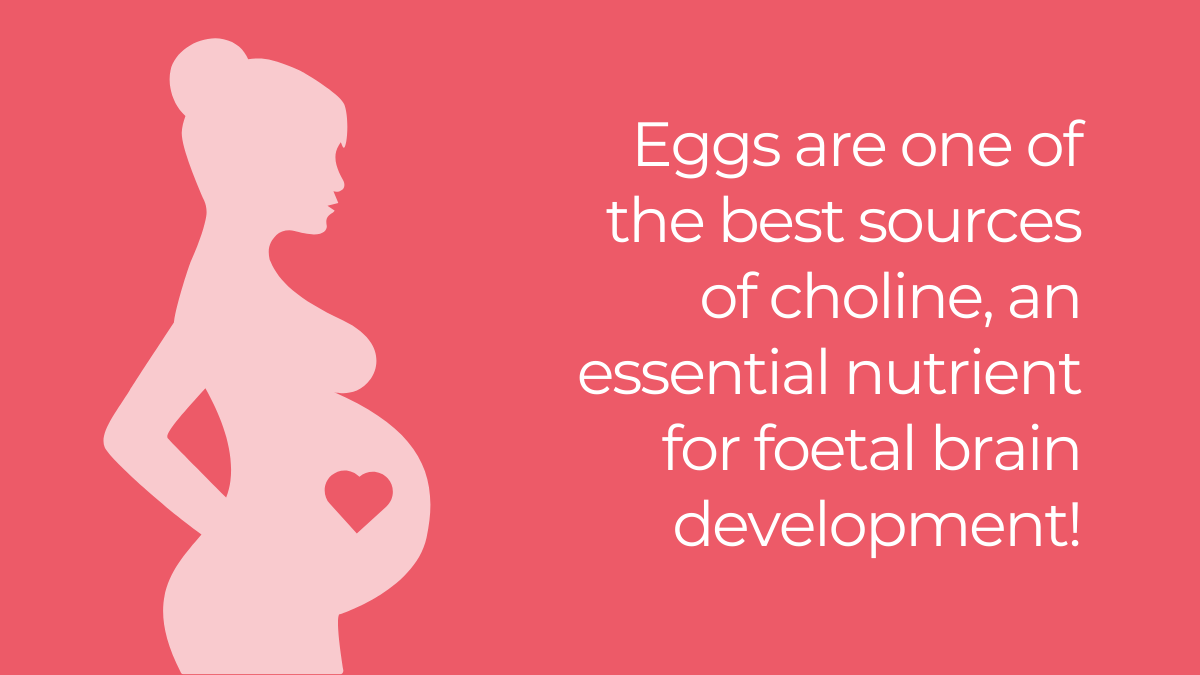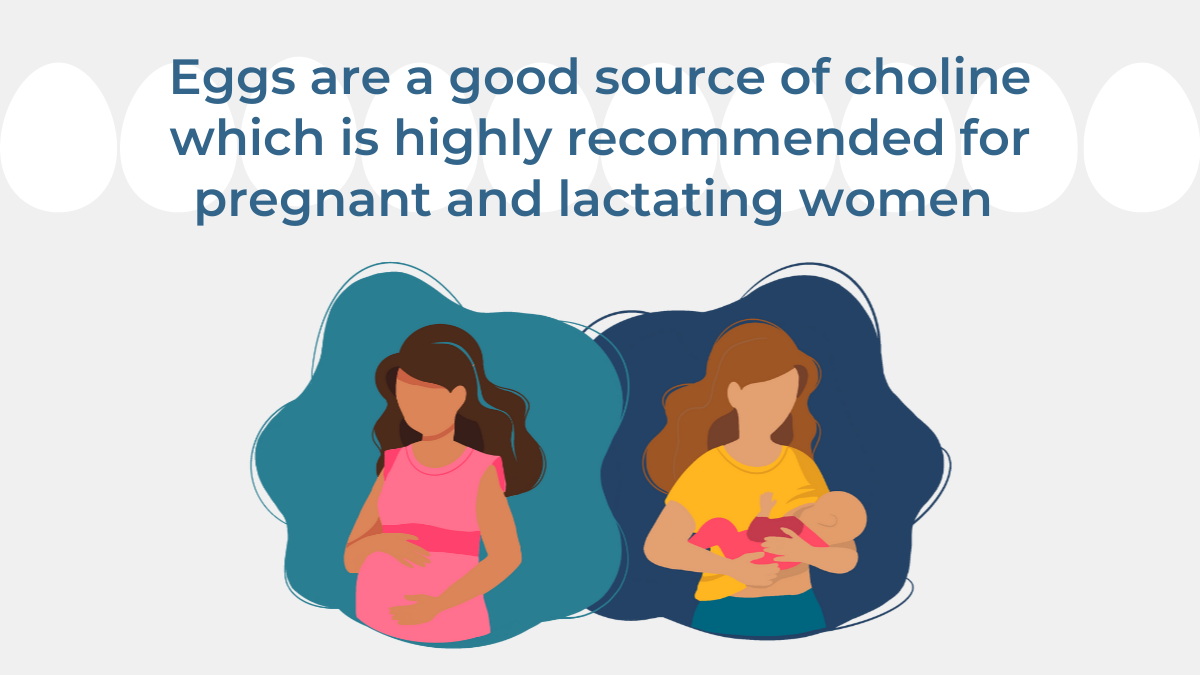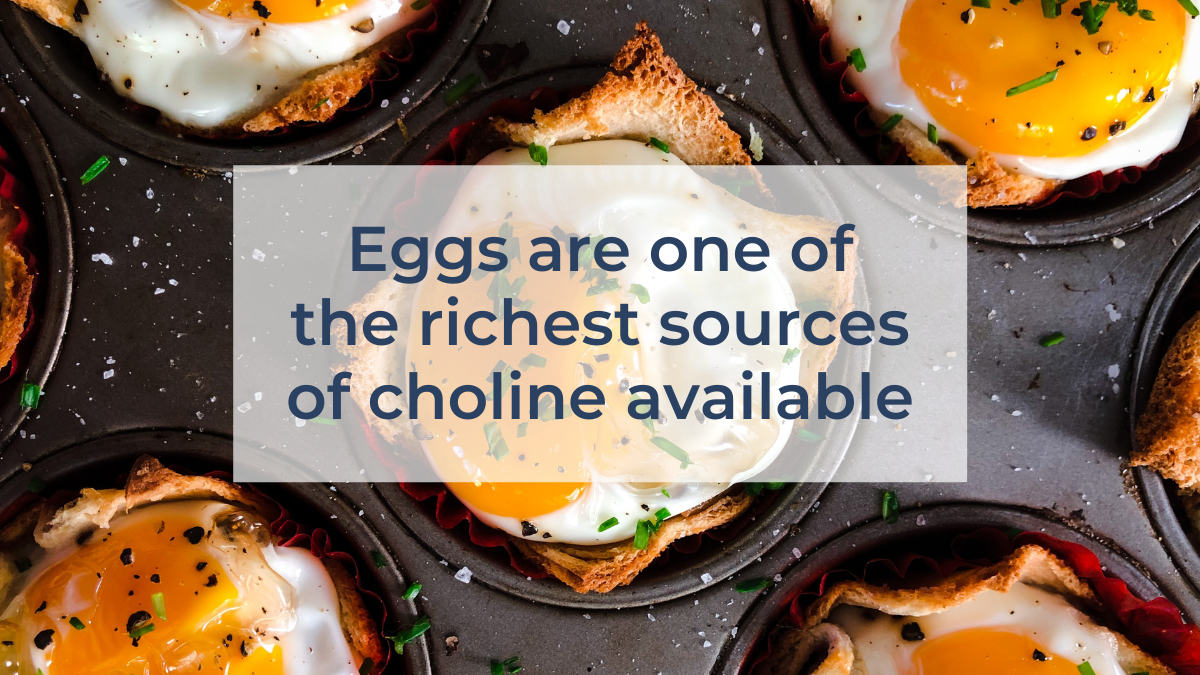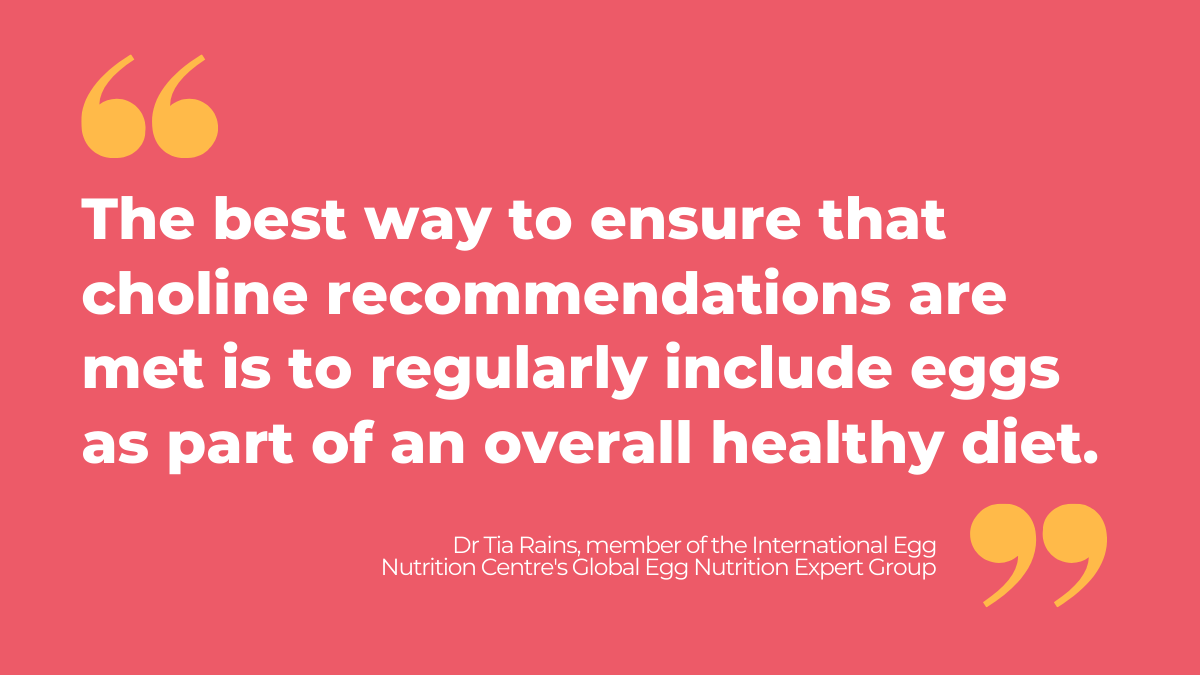Cracking Egg Nutrition: The unbeatable power of choline
The nutritional reputation of eggs is often attributed to their protein density and superfood status. With so many powerful credentials, it’s easy for some key nutrients to be overlooked and under-appreciated. Choline is a lesser-known essential nutrient found in eggs, required for normal bodily function and human health, yet many people do not meet the recommended intake1. Let’s explore the unbeatable power of choline to give this incredible nutrient the recognition it deserves!
Unbeatable benefits of choline
Until recently, the role of choline as part of a balanced diet had been largely overlooked. In fact, it was first officially recognised as an essential nutrient by the Institute of Medicine as late as 19981. Since then, choline has been revered by nutrition experts for its many benefits to human health and bodily function.
Dr. Tia M. Rains, PhD, member of the International Egg Nutrition Centre’s (IENC) Global Egg Nutrition Expert Group and Vice President of Customer Engagement & Strategic Development for Ajinomoto Health & Nutrition North America explains: “Choline is best known for its important role in brain health, both in terms of development of the infant brain during pregnancy, as well as normal brain function in adults, such as memory and thinking. Choline is also essential for liver function, metabolism of fats, and normal cardiovascular function.“
Although your body produces some choline itself, it is important to incorporate naturally choline-rich foods, such as eggs, into your diet to get enough of it. “Experts recommend that men and women over the age of 19 years consume 550 mg and 425 mg daily, respectively.” Says Dr Rains, “During pregnancy intakes should increase to 450 mg daily, and to 550 mg daily during lactation.”
“Most people do not meet the recommended intakes for choline.” Dr Rains continues, “This is particularly true for pregnant and lactating women. By some estimates, 90-95% of pregnant women are not meeting their choline needs, an essential nutrient critical for establishing normal brain function in the developing foetus2.”
Supporting health at both ends of the life cycle
The amount of choline we need from our diets depends on several factors, including pregnancy and age1,3,4.
The latest research suggests that choline plays an especially important role in brain and spinal cord development during pregnancy as well as cognitive development in infants. It can influence pregnancy outcomes, with a low choline intake raising the risk of neural tube defects in unborn babies.
For example, in a 2013 study, women in their third trimester of pregnancy received either 480 mg or 930 mg of choline per day. Those who took higher doses had fewer symptoms of pre-eclampsia, including high blood pressure, swelling and severe headaches5.
As well as providing key human health benefits at the beginning of the life cycle, choline may also help prevent cognitive decline in the elderly. Recent studies have indicated that older people who consume higher amounts of choline experience better cognitive function than those with low choline levels6,7.
Getting your daily dose of choline
While the amount of choline we produce in our liver helps us minimise the risk of deficiency, we need to consume this essential nutrient as part of our diets in order to meet our daily requirements.
Providing high-quality protein as well as a source of often under-consumed nutrients such as vitamin D, B12 and iron, eggs are one of the best ways to access the choline your body needs.
“Besides beef liver, eggs are the richest source of choline.” Adds Dr Rains, “Two eggs a day provides almost 300 mg of choline, more than half of the recommended daily intake. Other animal-source foods, such as meat, poultry, fish and dairy, contain high levels of choline.”
She continues: “Eggs contain a type of fat called phospholipids, one of which is called phosphatidylcholine. This is better absorbed by the human body compared to other sources of choline, making eggs an easy and affordable way to effectively meet dietary choline needs8.”
We have cracked it!
Bringing unbeatable benefits at both ends of the life cycle, we can be sure to add choline to the long list of reasons to choose eggs for health – especially since most of us don’t get enough of this much-needed nutrient!
Dr Rains summarises: “The best way to ensure that choline recommendations are met is to regularly include eggs as part of an overall healthy diet.”
References
1 Ziesel SH, da Costa, KA (2009)
Promote the power of the egg!
To help you promote the nutritional power of the egg, the IEC has developed a downloadable industry toolkit, including key messages, a range of sample social media posts, and matching graphics for Instagram, Twitter and Facebook.
Download the industry toolkit (Spanish)About Dr Tia Rains
 Tia M. Rains, PhD, is a member of the International Egg Nutrition Centre’s (IENC) Global Egg Nutrition Expert Group and Vice President of Customer Engagement & Strategic Development for Ajinomoto Health & Nutrition North America. She is a nutrition scientist and communications expert with more than 20 years’ experience developing and translating nutrition research to inform efforts that advance public policy, product development, and ultimately human health.
Tia M. Rains, PhD, is a member of the International Egg Nutrition Centre’s (IENC) Global Egg Nutrition Expert Group and Vice President of Customer Engagement & Strategic Development for Ajinomoto Health & Nutrition North America. She is a nutrition scientist and communications expert with more than 20 years’ experience developing and translating nutrition research to inform efforts that advance public policy, product development, and ultimately human health.
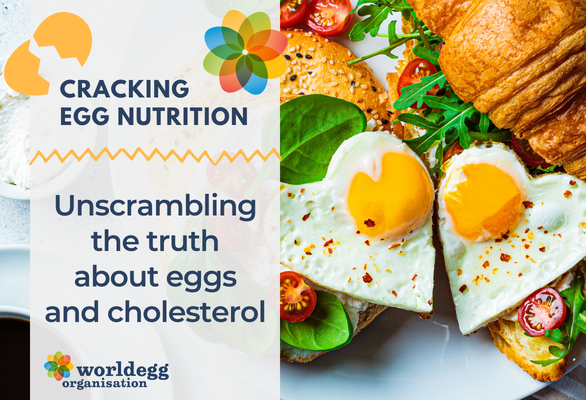
Unscrambling the truth about eggs and cholesterol
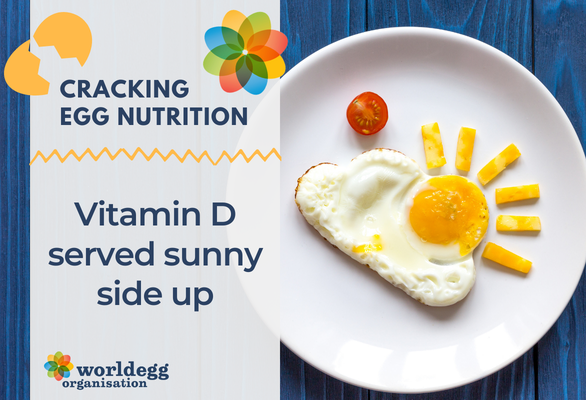
Vitamin D served sunny side up
